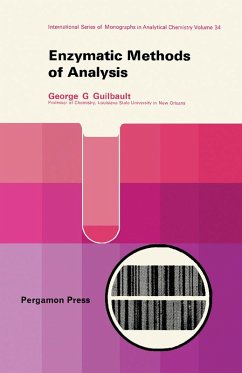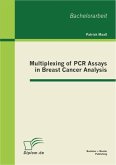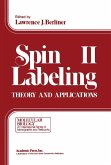The book begins with two introductory chapters devoted to general considerations of enzymes as reagents and methods of analysis of enzymatic reactions. The next four chapters deal with methods for the assay of specific enzymes, and substrate, activator, and inhibitor analysis using enzymes. In the last two chapters the immobilization of enzymes and the automation of enzymatic reactions are discussed. In addition, a listing of all commercially available enzymes is given in an appendix. It is hoped that the information presented will prove interesting and stimulating to all individuals engaged in research and development.
Dieser Download kann aus rechtlichen Gründen nur mit Rechnungsadresse in A, B, BG, CY, CZ, D, DK, EW, E, FIN, F, GR, HR, H, IRL, I, LT, L, LR, M, NL, PL, P, R, S, SLO, SK ausgeliefert werden.









